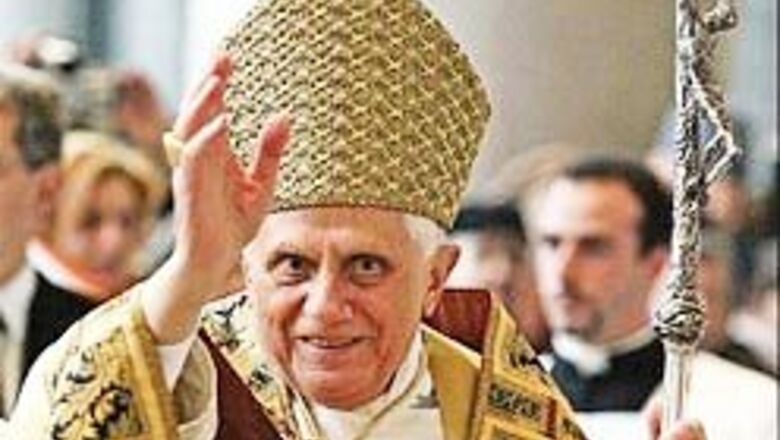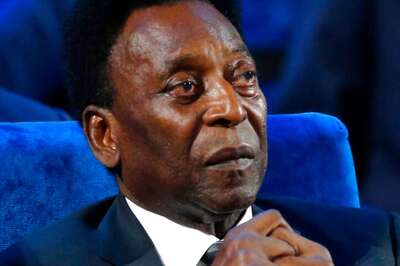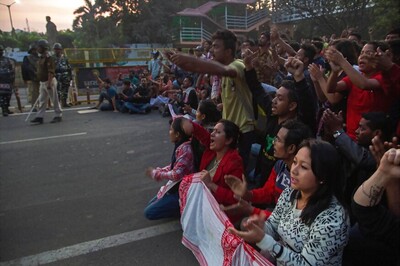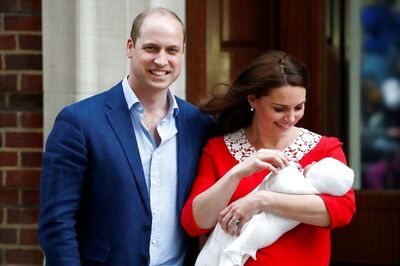
views
Castel Gandolfo (Italy): Pope Benedict XVI's reference to dark aspects in Islam's history also has opened up another type of backlash for his church: fresh examinations of its past as conqueror, inquisitor and patron of missionaries whose zeal has sometimes put them at odds with other faiths.
Stark comparisons between Islam and Western Christianity - and deeds done in their name - are again on the rise even as the pontiff urged Muslim envoys on Monday to look ahead rather than back.
Many Islamic leaders, in turn, have appealed for the West not to judge their faith's nearly 1,400-year history solely by modern-day calls for ''holy war'' and the Muslim rage over Benedict's Sept. 12 speech, which included a reference to a Byzantine emperor who characterized some teachings of the Prophet Muhammad as ''evil and inhuman'' such as spreading Islam ''by the sword.''
''There is this impression among Muslims that the pope was saying, 'We are superior and we are without problems,''' said Ali El-Samman, president of the interfaith committee for Egypt's High Islamic Council. ''The history books will tell you otherwise.''
The Vatican in recent years has tried to clear away some historical baggage, including a 2001 apology by Pope John Paul II for the medieval Crusades, which are widely seen by Muslims and Orthodox Christians as Western invasions. During a visit the same year to Syria, John Paul also became the first pope to visit a mosque.
In a meeting on Monday with Muslim diplomats from 21 nations and the Arab League, Benedict urged both Christians and Muslims to ''guard against all forms of intolerance and to oppose all manifestations of violence.'' He did not, however, offer a direct apology for his earlier remarks as demanded by some Muslim leaders and clerics.
Benedict's speech found a sympathetic ear among many in the West. A German theologian, the Rev. Martin Schuck, said any backtrack by the pope would amount to ''intellectual surrender'' to radical Islam.
But a professor of Islamic law at Qatar University, Muhammad Ayash al-Kubaisi, proposed another route: A debate with the pope on the history of their mutual faiths. His offer, posted last week on the Web site of the Al-Jazeera network, contends Christians should study their own turbulent past.
Crusaders in 1099 captured Jerusalem and began wholesale attacks on its population, including Muslims and Jews, historians say. At the same time in other parts of the Muslim world, a golden age of science, medicine and learning was under way with its intellectual hub in Baghdad.
In the early 13th century, Crusaders sacked Constantinople, the ancient center of Greek-led Byzantium, in part to use the plunder to fund more forays into Muslim lands. The Byzantine Empire never fully recovered from the blow and Muslim forces took the city - now called Istanbul - in 1453 and it became the seat of the Ottoman Empire.
PAGE_BREAK
Religious scholars have noted that Ottoman policy did not demand conversion to Islam across its realm, which covered much of the Balkans at its peak.
But some places, notably Albania and Bosnia, welcomed the faith. In Orthodox Christian Greece, an old saying is still widely used: Better the turban than the papal tiara.
The Roman Catholic Church was moving into one of its most troubling periods as the Ottoman Empire advanced.
In the late 15th century, Christians began a full-scale expulsion of Spain's large Jewish community and spared those who converted.
Then the infamous tribunals during the Spanish Inquisition persecuted and executed thousands of Christians for perceived heresies and conspiracies - including scientist-astronomer Galileo Galilei. He was ''rehabilitated'' by the Vatican during John Paul's papacy and the late pontiff wrote that ''the Inquisition represents almost the symbol ... of scandal''
''No religion is without their unholy periods,'' said the Rev. Khalil Samir, a Vatican envoy for interfaith links in Lebanon. ''To admit this is an important step to real understanding and dialogue.''
In recent decades, Islamic groups and others have increasingly targeted Christian missionaries for allegations of forced conversions and as symbols of Western interference.
In India, an Italian priest was killed in Turkey in an attack possibly linked to the outrage over caricatures of Muhammad.
Benedict plans to visit Turkey in November, but some hardline Muslim groups have threatened widespread protests.
The rise of radical Islam - and the soaring international tensions since the Sept. 11, 2001 terrorist attacks - have created an almost cottage industry of religious commentators. Christian leaders forge alliances with moderate Muslims to denounce extremism. Muslim clerics repeatedly cite Quranic passages that implore peace and tolerance.
But at a religious workshop of Muslims and Christians earlier this year, the Rev. Hans Ucko, a representative from the nearly 350-member World Council of Churches, said no real understanding is possible until the faiths look beyond their own texts.
''The Quran, Bible and other sacred books should come with a warning label,'' he said. ''It should say, 'These books may contain passages that can be interpreted for violence and intolerance.'''

















Comments
0 comment